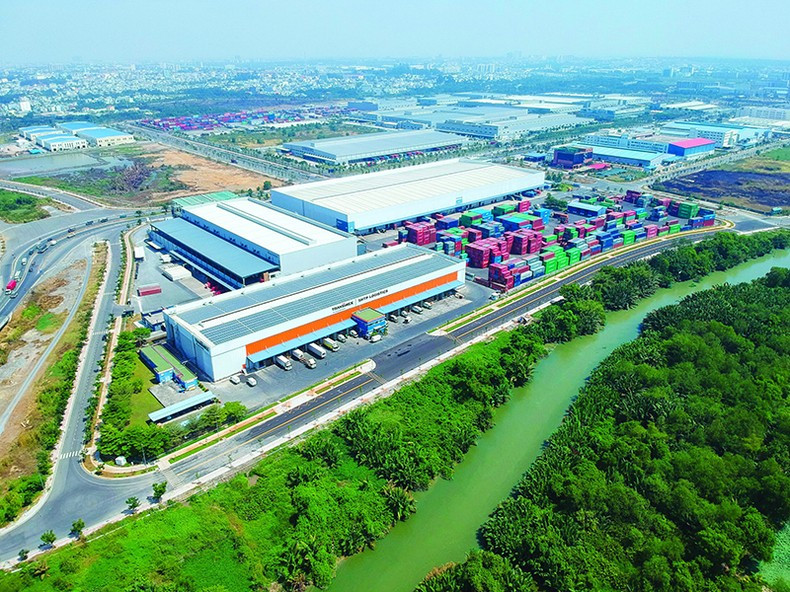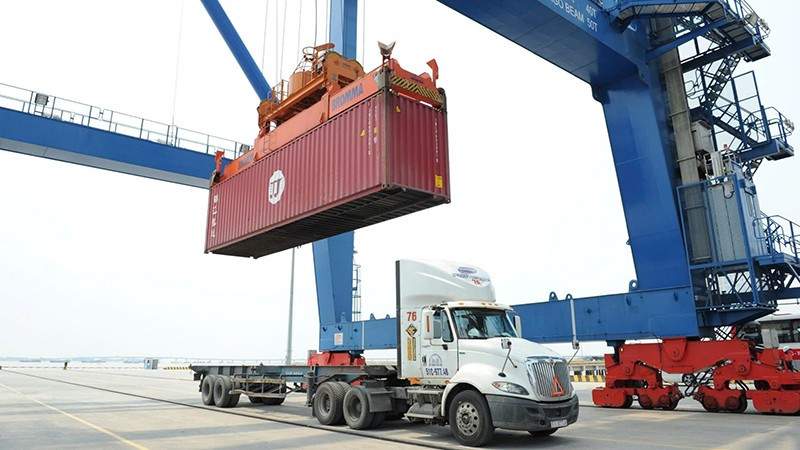Growing requirement for green transformation
Mai Tran Thuat, General Director of the Dong A Pharmaceutical Logistics (DPL), shared that its customers’ requirements for green transformation or green services are increasing.
He noted that besides adapting to new business trends such as business on e-commerce platforms, digital transformation, and enhanced digitalisation of business processes, enterprises also need to think about measures to meet the requirements of their customers.
Thuat said: “The customers now require us to provide them with green services. Therefore, in addition to enhancing service quality and cutting costs, we have to make necessary investments to meet their new requirements.”
DPL’s story is also shared by many in Vietnam’s logistics sector. According to Dang Hong Nhung at the Department of Exports and Imports under the Ministry of Industry and Trade, along with international economic integration, export-import activities, investment, and the boom of e-ecommerce, Vietnam’s logistics sector has also recorded outstanding results, with annual growth at about 15% and a market size of about 40-42 billion USD a year.
The logistics sector is now the playing field of over 40,000 enterprises, including the world’s big names such as DHL, CJ Logistics, and Maersk Lines. Several of notable Vietnamese companies are Transimex, Sotran, and Saigon Newport, which are capable of competing with foreign companies active in Vietnam.
Amid the global green transformation drive, logistics is rated a high-emitting and energy-intensive sector. According to research from the Massachusetts Institute of Technology, transportation alone contributes to 8% of the world’s total carbon emissions. If warehousing is included, that number can reach 11%.
Therefore, businesses are facing the pressure to comply with new regulations introduced by countries and international organisations on green transformation in limiting waste and reducing energy consumption. If Vietnamese businesses do not meet these requirements, they will be left out of the game.
In the long run, green transformation will help businesses optimise their processes and reduce costs, while also creating new business opportunities for the industry, for example, low-carbon transportation services or environmentally friendly packaging services.
Nhung said: “I think whether green transformation is a pressure or a driving force will depend on how businesses face and apply it.”
Sharing the same view, Dr Tran Thi Thu Huong, Head of Logistics and Supply Chain Department at the University of Commerce, said that the logistics industry is currently facing a greening trend, which is bringing both opportunities and challenges to Vietnamese businesses.
Accordingly, the advantage is that the green economy is receiving special attention in Vietnam. The growth rate of the green economy in Vietnam during the 2018-2021 period reached 10-13% per year, contributing about 2% to Vietnam’s GDP. This is a positive signal for the economy.
Furthermore, in terms of policy, Vietnam has made very strong commitments, both internationally and domestically. Examples include international commitments in the UN Framework Convention on Climate Change since 1992 and most recently the very strong commitments made by the Prime Minister at COP26 to reduce Vietnam’s carbon emissions.
Removing difficulties
 |
| Green transformation helps logistics enterprises enhance their competitiveness. |
Besides advantages, Vietnamese logistics enterprises also face many difficulties. The biggest of which is pressure from the market. Greening will certainly require businesses to invest sizable sums in the early stage.
Thuat said that the first difficulty when implementing green logistics is investment. Furthermore, when implementing green logistics, the operating process will be affected, from warehouse staff to truck staff and dispatchers. The question is whether they can they meet the new processes or not. This will require time and costs for training staff, purchasing new technology and putting it into operation.
Thuat continued: “It is necessary to increase support from macro policies, especially when it is implemented. There needs to be policies to attract and support businesses to invest in green logistics, and at the same time there needs to be training for businesses on green logistics.”
According to Nhung, green logistics is no longer a trend, nor is it a choice for businesses, but rather it is a mandatory requirement. If businesses want to survive and grow, they must learn and incorporate green regulations into their business strategies.
For businesses that already have a green logistics strategy and are implementing green logistics, they should regularly review their strategies to update new regulations as well as the government’s new incentive policies. The important thing is to take action.
“Green transformation activities are all activities that reduce emissions to the environment and are environmentally friendly. Even optimising processes and reducing the amount of paperwork released into the environment are also green transformation activities,” shared Nhung.
As the leading agency in national logistics development, the Ministry of Industry and Trade is actively working with ministries, sectors and localities to remove difficulties facing businesses, and at the same time advise government leaders on strategies to attract investment in developing logistics services associated with green logistics and sustainable development.
Nhung said: “In fact, policies on green logistics development are not new, but have been integrated into all strategic orientations of the Vietnamese government for a long time, but since the COP26 Conference, we have seen them become more prominent and receive more attention.”
Currently, the Ministry of Industry and Trade is focusing on implementing Prime Minister’s action plan to enhance competitiveness and develop national logistics by 2025, in which the Ministry of Industry and Trade regularly step ups trade promotion and investment attraction as well as supports businesses in taking advantage of FTAs and developing industry relationships.
In addition, the Ministry of Industry and Trade is coordinating with associations such as the Vietnam Logistics Business Association (VLA) and the Vietnam Association for Logistics Manpower Development (VALOMA) to organise training courses and support logistics service enterprises.
Regarding specific priority policies in specific areas of logistics at present, Nhung said that projects on building logistics centres are on the list of investment preferences and enjoy full incentives according to the Investment Law and its guiding documents.
In addition, since 90% of Vietnamese logistics enterprises are small and medium enterprises, they also enjoy incentives under the Law on Support for Small and Medium Enterprises, making their green transformation process more favourable.
















